Breastfeeding nutrition is a topic I get a lot of questions about, and yet this is a topic that many are afraid to discuss, especially when it comes to how a mother’s nutrient intake/status might affect the nutrient content of her breast milk.
But so many people ask me: “Can we boost the nutrient levels in breast milk?”
The reason this topic is so challenging to discuss—even taboo—is that…
1) There’s fear of making breastfeeding moms question their milk (something that’s pretty much already a given—been there!) OR
2) We want to avoid complicating nutritional advice on breastfeeding (sometimes with the overwhelm that naturally accompanies new motherhood, “eating enough” really is priority number one, however this ignores the micronutrient part of the conversation).
When I saw an amazing lactation consultant (IBCLC) in the early weeks of nursing my son, she told me that “it doesn’t matter what you eat, your breast milk composition doesn’t change.”
Some people say that because your body can pull from its nutritional stores during pregnancy to nourish your baby, your body can simply do the same while nursing.
Breast Milk Composition: Is it fixed?
Let me say that I empathize with all of the above reasons for not diving into the nuances of nutrition for breastfeeding. It’s incredibly taboo.
Fearing that your milk/supply is “not enough” for your baby is often cited as the #1 reason that women stop breastfeeding.
It’s a topic I really questioned if I should include in my book, Real Food for Pregnancy. The last thing I want to do is to inadvertently discourage breastfeeding.
Ultimately, after doing extensive research on the topic, I came to the conclusion that YES, while breast milk is the preferred food for infants, its nutritional composition is not fixed.
As one breast milk researcher explains, “breast milk is conditionally perfect,” meaning its nutritional composition DOES indeed shift based on a mother’s diet and/or nutrient stores. It absolutely CAN be deficient in nutrients.
Nutrient Deficiencies are Quite Common
When so many people are going into pregnancy with nutrient deficiencies, then coming out of pregnancy even more nutrient depleted, it’s actually doing mothers and babies a disservice to pretend that this is a non issue.
The assumption is often that maternal nutrient deficiencies are only common in developing countries, but this is not true. The giant U.S. survey on nutritional status known as NHANES found that 47% of pregnant or breastfeeding women are deficient in at least one micronutrient.
That’s almost half of mothers and expectant mothers!
Can We Boost the Nutrient Levels in Breast Milk?
I believe that support for breastfeeding can coexist with advice to optimize nutrient intake. This not only ensures that baby gets an adequate supply of micronutrients, but that mothers recover well from pregnancy and birth.
Simply put: We can do better for moms and babies.
I recently re-immersed myself in the research on breastfeeding nutrition, with a specific focus on how the nutritional status/intake of mom affects the nutrient levels in breast milk (and ultimately her infant).
I reviewed hundreds of studies and included research from 125 of them into a detailed webinar on nutrition for breastfeeding geared towards healthcare practitioners (I include full citation list for attendees).
About 75% of the presentation focused on the micronutrient levels in breast milk.
Here are a few interesting facts about nutrition for breastfeeding from my research:
- The macronutrient in breast milk most sensitive to maternal intake, by far, is fat. Both the quality (type of fat) & quantity reflect maternal intake. This is new information for a lot of people in the lactation community (especially the quantity part), but there are a number of studies, including clinical trials of different levels of dietary fat intake (and types of fat), that have shown the above to be true.
- Most B vitamins are sensitive to changes in a mother’s intake and/or serum levels. The one to be most aware of is vitamin B12. Studies have shown that mothers who don’t get enough only provide an estimated 16% of their baby’s vitamin B12 requirements. Vitamin B12 is one of the top 3 most common micronutrient deficiencies affecting pregnant and nursing moms. Because vitamin B12 is vital for brain development and ensuring that your baby’s nerves get a protective coating of myelin, failure to get enough in the first year of life has been linked to irreversible neurological damage in up to 50% of infants who face deficiency (even after improving B12 status with supplementation). This sounds scary because it is and there is no way to sugar coat it. In the webinar, I talk about the different options for getting enough vitamin B12 from food sources or supplements. This is something that especially needs more attention in the vegetarian and vegan community.
- Choline needs are highest in lactation and, like pregnancy, there’s data that we need a LOT more than the current recommendations. Maybe this is why high choline foods (eggs, organ meats, and seafood) are a mainstay in many postpartum traditions from other cultures. With so much data accumulating on the importance of choline, I anticipate the recommended intake for breastfeeding women will increase the next time they revise the guidelines.
- Vitamin A needs (specifically retinol, the form found exclusively in animal fats) are high in lactation, but up to 60% of mothers have low retinol levels in milk (low vitamin A levels in milk are even more common for mothers of preterm infants). In the webinar, I talk about possible reasons for this & how to boost milk retinol levels. HINT: beta carotene from plants won’t help, since conversion to retinol is dismally low).
- Vitamin D levels in breast milk are highly dependent on a mom’s intake. Since most people don’t get enough, most breast milk is low in vitamin D, BUT that does NOT mean that vitamin D doesn’t transfer into breast milk. It means we need to ensure mothers get enough vitamin D to support not only her levels of this nutrient, but her baby’s as well. When mamas get enough, a separate infant vitamin D supplement becomes unnecessary. See this post for more on the amount of vitamin D research has found is required to adequately supply mom and baby.
If you find this type of information fascinating, you’ll want to watch my breastfeeding nutrition webinar, which focuses on how a mother’s nutrient intake/status impacts the nutrient transfer into breast milk.
It’s available on-demand on the Women’s Health Nutrition Academy website (click here). There are SO many more fascinating statistics and research findings packed into this webinar.
You get lifetime access to watch (and re-watch) the presentation as many times as you’d like. It’s 90 minutes + 30 minutes of Q&A.
As I prepare for my second nursing journey later this year, I’m feeling rather empowered that there’s so much I can do to optimize my nutrient intake and thus the nutritional status of my baby.
I understand that some people may not feel the same way when given the same information, which is why it’s so important (if you’re a mama) to find a health professional who “gets it” and can meet you where you’re at with guidance that’s specifically tailored to your needs.
If that’s not possible, I’d recommend reading chapter 12 of Real Food for Pregnancy. Yes, I cover a lot of information, but I try not to get too deep into the weeds! You’ll walk away with clear guidance on what nutrients to have on your radar and how to optimize your intake with food (and, if needed, supplements). Knowledge is power!
If you’re a health professional working in the lactation space (and especially love getting into details from research studies, I highly encourage you to check out the breastfeeding webinar.
To my knowledge—and based on feedback from attendees—this is the most comprehensive training on breast milk nutrient composition available anywhere. You’ll walk away with information you can use in your practice right away. Check it out here.
Before you go, I’d love to hear from you:
- What have you heard about the nutritional composition of breast milk? Were you told it’s not impacted by your diet or something different?
Until next week,
Lily
P.S. – Way back when I was nursing my son, I recorded an interview on breastfeeding nutrition with the amazing Lisa Hendrickson-Jack of the Fertility Friday podcast. He was 8 months at the time, so there’s plenty of “real talk about breastfeeding.” If you’re in the thick of it and need some reassurance, check it out here.
P.P.S. – Don’t forget that focusing on foods/nutrients to support optimal levels in your breast milk also supports your own postpartum recovery. If you want to get a comprehensive education on optimizing postpartum recovery & nutrient repletion, I’ve got a separate webinar on that exact topic right here.
References
- Bird, Julia, et al. “Risk of deficiency in multiple concurrent micronutrients in children and adults in the United States.” Nutrients 9.7 (2017): 655.
- Allen, Lindsay H., et al. “Biomarkers of Nutrition for Development (BOND): Vitamin B-12 Review.” The Journal of nutrition 148.suppl_4 (2018): 1995S-2027S.
- Davenport, Crystal, et al. “Choline intakes exceeding recommendations during human lactation improve breast milk choline content by increasing PEMT pathway metabolites.” The Journal of nutritional biochemistry 26.9 (2015): 903-911.
- Guez, Sophie, et al. “Severe vitamin B12 deficiency in an exclusively breastfed 5-month-old Italian infant born to a mother receiving multivitamin supplementation during pregnancy.” BMC pediatrics 12.1 (2012): 85.
- Allen, Lindsay H. “B vitamins in breast milk: relative importance of maternal status and intake, and effects on infant status and function.” Advances in Nutrition: An International Review Journal 3.3 (2012): 362-369.
- Hollis, Bruce W., et al. “Maternal versus infant vitamin D supplementation during lactation: a randomized controlled trial.” Pediatrics 136.4 (2015): 625-634.
- Innis, Sheila M. “Maternal nutrition, genetics, and human milk lipids.” Current Nutrition Reports 2.3 (2013): 151-158.
- Sauer, Charles W., Mallory A. Boutin, and Jae H. Kim. “Wide variability in caloric density of expressed human milk can lead to major underestimation or overestimation of nutrient content.” Journal of Human Lactation 33.2 (2017): 341-350.
- Torsvik, Ingrid Kristin, et al. “Motor development related to duration of exclusive breastfeeding, B vitamin status and B12 supplementation in infants with a birth weight between 2000-3000 g, results from a randomized intervention trial.” BMC pediatrics 15.1 (2015): 218.
- Matamoros, Natalia, et al. “Vitamin A content in mature breast milk and its adequacy to the nutritional recommendations for infants.” Archivos argentinos de pediatria 116.2 (2018): 142-153.
- Gurgel, Cristiane Santos Sânzio, et al. “Effect of routine prenatal supplementation on vitamin concentrations in maternal serum and breast milk.” Nutrition 33 (2017): 261-265.

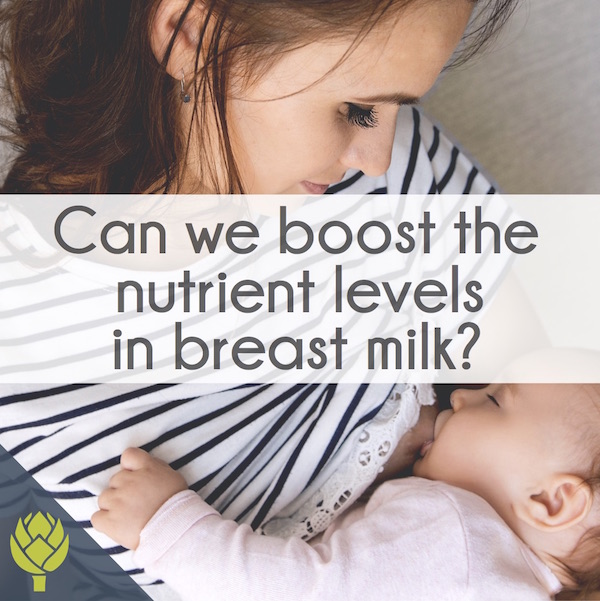

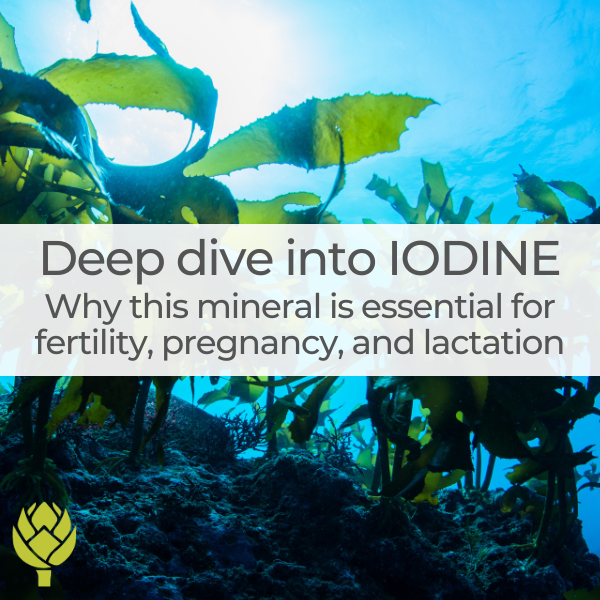
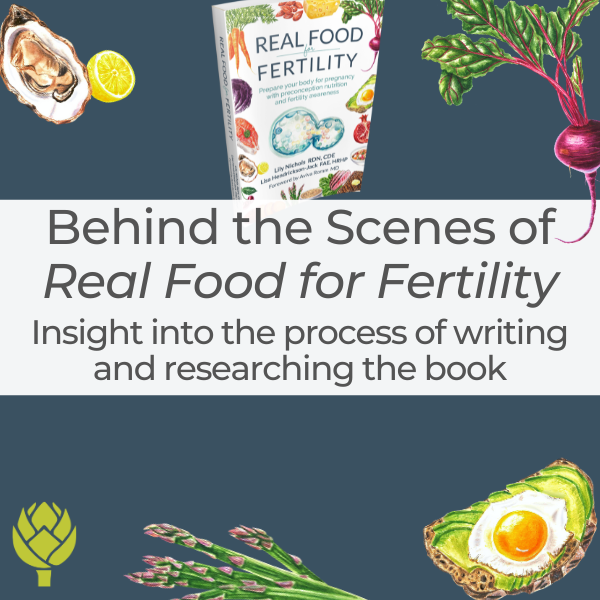
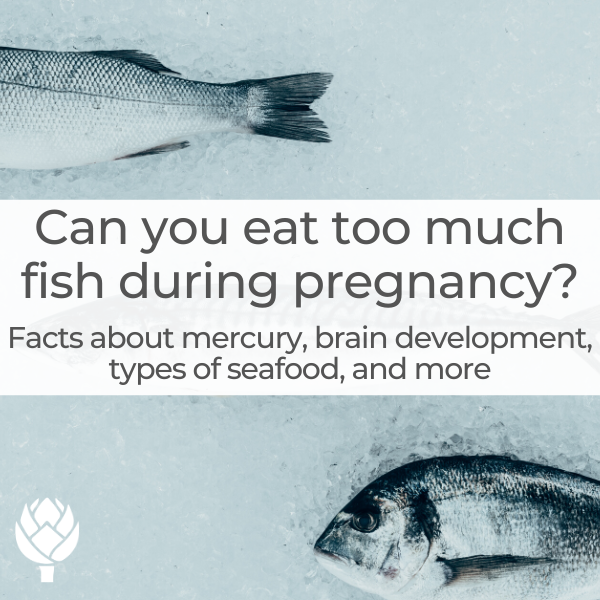
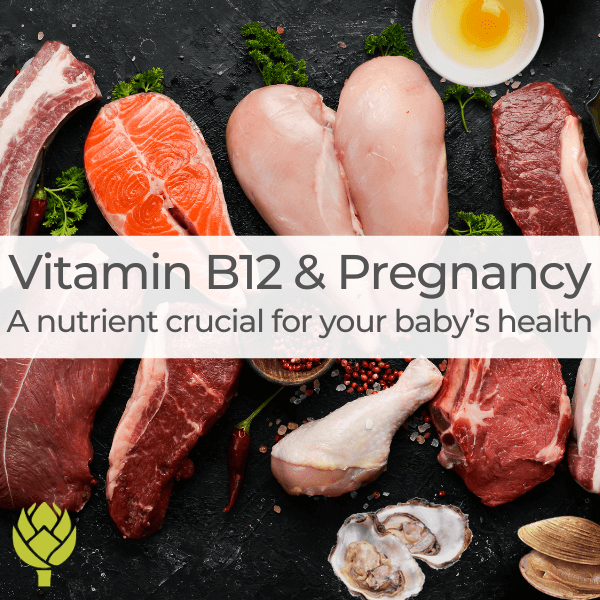



Hello,
I see all over Youtube women freezing massive stores of breast milk. I have heard that your body will adjust the milk based on the babies current needs. Such as, he or she is sick and the milk will produce more antibodies or whatnot. Also, I am under the impression that the milk will change as the baby gets older. So my question is, should I be pump to store a massive supply of breast milk or just pump enough to feed the baby and have a small bit on hand for emergencies? You may answer this in the webinar, but I haven’t purchased that yet, as I’m not due till September. I did get a ton of valuable info from your book, I have hidden liver in every ground beef meal! 🙂
Thanks!
Jamie
Yes, breast milk shifts based on stage of lactation (and yes, this is covered in my webinar) and in response to immune challenges in the environment. As far as what’s “ideal” for baby, certainly mimicking nature and feeding at the breast and on demand is great, but this is not always possible for a variety of reasons (lack of paid maternity leave in the U.S. is a major factor). The decision of how long to breastfeed, how (at the breast vs. pumping or a combination), and so many other nuances of infant feeding are best discussed with a certified lactation consultant.
I’ve been told by a lactation consultant that the breast milk changes based on the baby’s needs. There’s a communication happening as the baby sucks on the nipple that informs the body what the baby needs.
Yes, this is true when it comes to a number of immune compounds, including antibodies to a particular virus/bacteria that the mother or baby may have been exposed to.
For nutrients, breastfeeding researcher Miriam Erick, MS, RD explains: “It is a biological impossibility for a lactating woman to transfer nutrients via breast milk she does not have!”
Can you point me to the research backing up this claim please?
“The macronutrient in breast milk most sensitive to maternal intake, by far, is fat. Both the quality (type of fat) & quantity reflect maternal intake. This is new information for a lot of people in the lactation community (especially the quantity part), but there are a number of studies, including clinical trials of different levels of dietary fat intake (and types of fat), that have shown the above to be true.”
I remember your interview on Fertility Friday about breastfeeding nutrition. That plus books I’ve read, including Deep Nutrition, had me convinced that what we eat has a big impact on the nutrient content of our breastmilk. But whenever I try to share this, I’m usually contradicted, often by lactation consultants. Thank you for writing a book and this blog post, so I have resources to share! It only makes sense that the food we eat will be converted into breastmilk.
-Do you have any advice on excess Lipase in breast milk causing pumped milk to go bad quickly?
-Excessive foremilk causing colic?
I would really like to take this webinar BUT I wonder if it is possible to get lactation or nursing credits for it?
Thank you!
Karima Isberg RN, BSN, IBCLC
At this time, we are accredited providers for the Commission on Dietetic Registration only, however, we include learning objectives and course overviews for all of our courses and many do meet the requirements for continuing education credits for other professions. So while the courses are not pre-approved, we’d encourage you to try to submit for credits for them.
For my first born, I had to pump milk. My diet was pretty main steam back then, low fat lots of Carbs etc. When I pumped the milk I saw it was pale white in colour (which I was told is thr foremilk), then sometime later thick white milk started coming.
For my third son I had to pump again. This time my diet included lots of fats (olive, codliver oil, grass-fed butter) meats, eggs and low Carb. My milk that came out was super thick and white. Even my husband commented saying how come ur milk looks different compared to before lol but my third son was fuller for longer and thriving much better than my first.
So yes diet does change composition of breastmilk
I’ve heard many stories like this from clients (thick cream top on the milk after it sits in the fridge vs. when eating low fat, their milk looked like skim milk) and it turns out there’s indeed data to back it up.
Hi Lily, can you point to the research that supports this? I’d love to read more since my milk used to look thick and yellow and now looks white and thinner.
Hi Lily, do you know if there is any link between nutrition and over supply of breastmilk at all? Aside from advice on managing feeding positions and timing, I haven’t found any information regarding nutrition or any underlying reason besides a brief mention about an over active thyroid possibly contributing to this. Thanks! Liz
I got your book Real food for pregnancy and I really enjoyed it and had an amazing pregnancy (and I’m having a great breastfeeding journey). Thank you!!
I live in Spain and none of the supplements that you suggest are available here. Could you tell me what should I look for to get a good one??
LOVE this post – the more I read about it, the more apparent it becomes that nutrition while breast-feeding is critical! It took almost 4 months after my daughter was born to finally link her colic to my diet: she was hyper-sensitive to dairy, soy, and gluten, so much so that I couldn’t even eat foods that contained modified-milk ingredients in small quantities, or restaurant/take-out food that used vegetable oil since it’s almost always actually soy-bean oil. We saw numerous doctors and pediatricians and they all just recommended I reduce dairy and soy, with no mention of potentially other contributing foods (corn and eggs are also known to cause colic). Our poor daughter screamed in pain for hours on end during those 4 months until finally a Naturopath recommended I completely eliminate dairy/soy and that I cut out gluten as well. Literally within 2 days our daughter was happy as a clam and hardly had any digestive discomfort. If she randomly started crying in pain again, I could link it back 12 hours almost to the minute of me eating something that I would realize contained one of the three food sensitivities. So I’m an absolute believer that our diet affects the quality and quantity of breast-milk! Looking forward to implementing these learnings, as well as all the amazing info in your book, for nursing #2 due in a month.
Can you point me to the research backing up this claim please?
“The macronutrient in breast milk most sensitive to maternal intake, by far, is fat. Both the quality (type of fat) & quantity reflect maternal intake. This is new information for a lot of people in the lactation community (especially the quantity part), but there are a number of studies, including clinical trials of different levels of dietary fat intake (and types of fat), that have shown the above to be true.”
Hey Lily,
I am currently a breastfeeding mom with osteopenia. I am a very healthy eater and per suggestions from your research, I make sure that I include as much vitamin K2 as I can per day (I drink whole grassfed milk every night, I eat munster cheese, chicken and beef liver). In addition to breastfeeding my son, I have been pumping for a friend of mine who has a baby the same age as my son through a surrogacy for the past 4 months. I already spoke to a lactation specialist about how best to hand the milk process (and ensure that my son is getting everything he needs – I seem to be a super producer), but I was wondering if you knew if by my pumping an extra 12-20 oz per day for this other baby will affect my bone density. I know that pregnancy and breastfeeding does impact bone density but that it typically returns to normal after you stop breast feeding. Do you have any advice you could give me? I want to help my friends baby but I want to make sure I am not hurting myself by doing so. I would also love any dietary recommendations you have for foods that I may not be including in my diet. I also have been dealing with some prolapse that I am working with a PT for and I am wondering if that has being made worse by pumping more? My PT has no idea as she hasnt had a client who is doing what I am doing but she does not think it would make a difference.